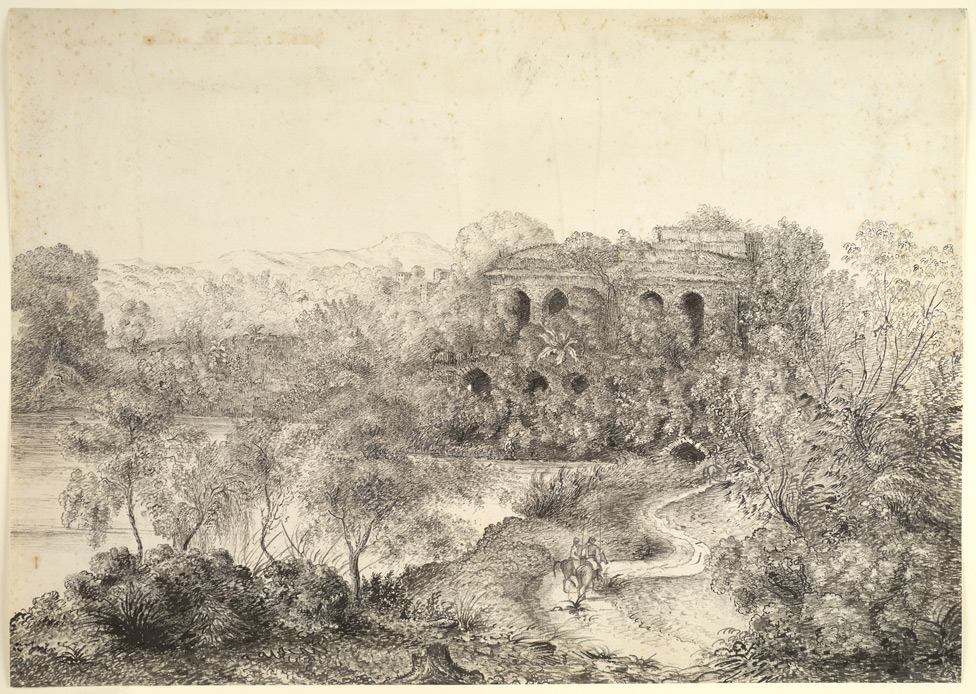FWP:
SETS
HOME: {14,9}
TAMASHA: {8,1}
The house is now in an advanced state of desolation. The Doorkeeper has nothing to do now, since no guests come, and no valuables are left in the house. Nor does the wretched homeowner have any money left to pay him. Fortunately, the house is reverting so completely to wilderness that the Doorkeeper both can and must make a living (taking madaar in the sense of 'dependency' or 'foundation') by cutting and selling the tall wild grasses for fodder. To my surprise, this obvious-seeming interpretation does not figure in the readings of most commentators (except for Vajid, who emphasizes it).
A nice affinity between madaar as 'ground' (though in an abstract sense; see the definition above), and grass-digging, is another pleasure of this verse. Nazm points to the idiom about 'strange greenery' as well, and the Doorkeeper's duty of trying to keep out such 'strangers'. For another very apt verse about greenery in the house, see {156,1}.
Also, the general tone of relish in the first line is amusing. If the lover's house is full of lush weedy grasses, providing a whole new function (and surely a new living as well) for his Doorkeeper, what kind of desolation is that? It's a kind of desolation in which he can take a perverse pride, and about which he can say, 'Enjoy the spectacle!' [tamaashaa kar]. Moreover, there must be somebody there to whom he is saying it. So after all, at least one guest is apparently present, and is being shown around with a flourish, so the 'desolation' is not exactly total. The word tamaashaa can also have a mystical sense that would be very appropriate here; for more on this, see {8,1}.
Vivek Yadav has suggested (Oct. 2018) that the viiraanii could also be taken as vocative, so that a personalized 'Desolation' might be the guest who is invited to enjoy the spectacle. This too seems possible, though a human guest is surely more piquant.

Nazm:
'Greenery' refers to 'strange greenery' [sabzah-e begaanah]. Because greenery that springs up inappropriately is called 'alien greenery', and for greenery to spring up in a house at all is inappropriate. Thus the author's meaning is that the desolation has reached such a pitch that 'strange greenery' has sprouted in his house, and it is the Doorkeeper's task to keep strangers out of the house. (11)
== Nazm page 11